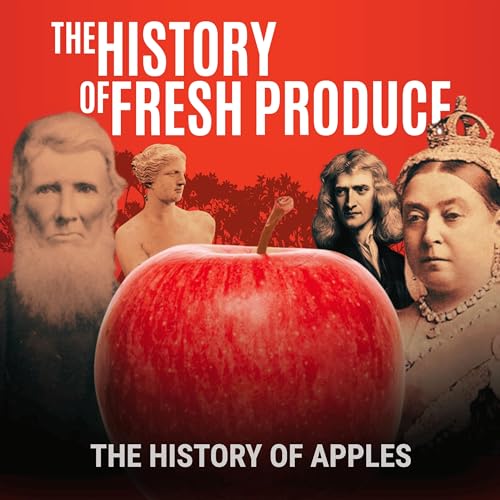
The History of Apples: Medieval Times (Part 2)
Failed to add items
Add to basket failed.
Add to Wish List failed.
Remove from Wish List failed.
Follow podcast failed
Unfollow podcast failed
-
Narrated by:
-
By:
About this listen
From the kitchens of medieval Europe to the orchards of Anglo-Saxon England, the apple became far more than just a fruit. It was medicine, it was myth, it was ritual.
In part two of our apple series, John and Patrick explore how crab apples were pressed into sharp, sour verjuice to season everything from pigs’ feet to plague remedies, how Anglo-Saxon charms and midwinter wassailing blended Christianity with ancient fertility rites, and how monks carried apple cuttings—and their spiritual symbolism—across the continent.
From the orchard-cemeteries of St. Gall to the fruit catalogues of Charlemagne, apples became embedded in the medieval imagination. And just as they took root in law codes, legends, and royal gardens, they also crept into the realm of story—appearing in myths of archers, kings, and poisoned fruit.
Join John and Patrick as they uncover how the humble apple became a cornerstone of medieval life, belief, and lore…
----------
In Sponsorship with J&K Fresh.
The customs broker who is your fruit and veggies’ personal bodyguard. Learn more here!
-----------
Join the History of Fresh Produce Club for ad-free listening, bonus episodes, book discounts and access to an exclusive chatroom community.
Support us!
- Share this episode with your friends
- Give a 5-star rating
- Write a review
-----------
Subscribe to our biweekly newsletter here for extra stories related to recent episodes, book recommendations, a sneak peek of upcoming episodes and more.
-----------
Instagram, TikTok, Threads:
@historyoffreshproduce
Email: historyoffreshproduce@gmail.com



